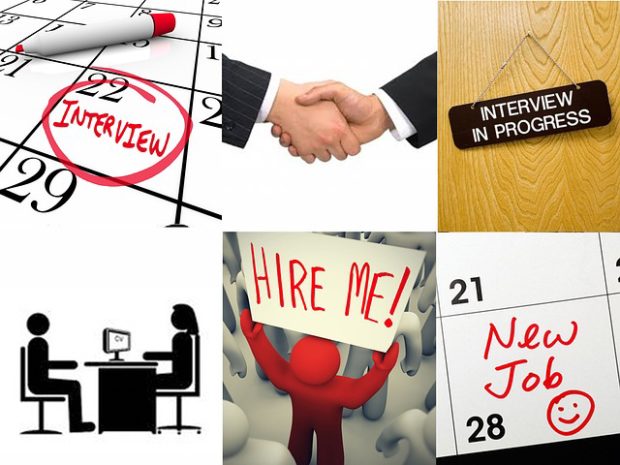Job Hunting? Ace Your Next Interview!

If you’re hunting for a job, you know the routine: apply, apply, apply, then hope for an interview. Whether you apply on line, on paper, or (most effectively) through a connection your first interview is your chance to really differentiate yourself from other candidates. How can you move from the first interview to the next, and next, and finally the job offer? Here are 6 tips, based on years of interviewing and being interviewed.
Do Your Research
Before the interview, learn whatever you can about the company, industry, role and people you will be meeting. Don’t just look at the company website; investigate industry groups, competitors, stock market filings, and LinkedIn. Use your network! Ask friends and colleagues what they know about the company, product, position or people. Go into the interview knowing more than just what’s in the job listing!
Know Your Value Proposition
What’s special about you? What makes you the best person for the job? Be able to articulate it quickly and crisply, and back it up with examples. Practice saying this over and over until you feel comfortable with what you are promising
Have Star Stories
‘Star Stories’ are short examples you use to answer questions. Whether the question is ‘tell me about a time that….’ or ‘what’s your greatest weakness’ you should have a brief, real-life example that shows your abilities. Keep it under 2 minutes, focused on what you did to make a difference. If others were involved, give them credit – but keep yourself and your accomplishments at the center.
Know Your Red Flags
The interview is a chance for both you and the company to test the fit, so know what you need and can’t tolerate. Everyone has something that they must, or must not, see in a job or workplace. The only question is whether yours and the company’s match up. Know what your non-negotiables are. It might be a location, or the lack of flexible hours, or an amount of travel. Explore these topics with open-ended questions (‘how much travel is involved?’) Have prepared answers and be able to state your boundaries calmly and without being defensive.
Ask The Right Questions
Your research should give you questions about the company to ask: about the competitive environment, new entrants, threats…and be prepared with your own thoughts. They might ask you these questions too! Ask about the normal day-to-day office routine, how people work together, what are the team’s strengths, where are they looking to improve. Ask open ended questions – not yes or no ones. You will get much more information! Is this your first interview with the company? Save the questions on salary for later rounds.
Ask For the Job
At the end of the interview, ask yourself: ‘Do I want this job?’. If the answer is a firm ‘No’ it’s OK to thank the interviewer for her time and say that it’s not a good fit. Give a concrete reason (‘I am looking for a role with direct managerial responsibilities’). If you do still want the job, or you aren’t sure yet, re-state your interest. Ask what else you can share that will help them decide to hire you. Ask what the next steps are.

Send a thank-you note after the interview, too. I am always amazed at how many people don’t do this, and what a difference it can make.
Whatever happens in the interview, stay calm. An interview is a conversation, and it’s good practice for all of the other interviews you will have in the future. Keep practicing, stay positive keep trying to move forward. And when the right job comes along, you will ace the interview!


